Tips for Wedding Coordinators: Essential Advice for a Perfect Event
Planning a wedding can be an exciting but challenging task, especially for wedding coordinators. Your job is to ensure everything runs smoothly, from the smallest details to the big moments. Whether you’re new to wedding planning or have years of experience, there are always new tips and tricks that can help make the process easier.
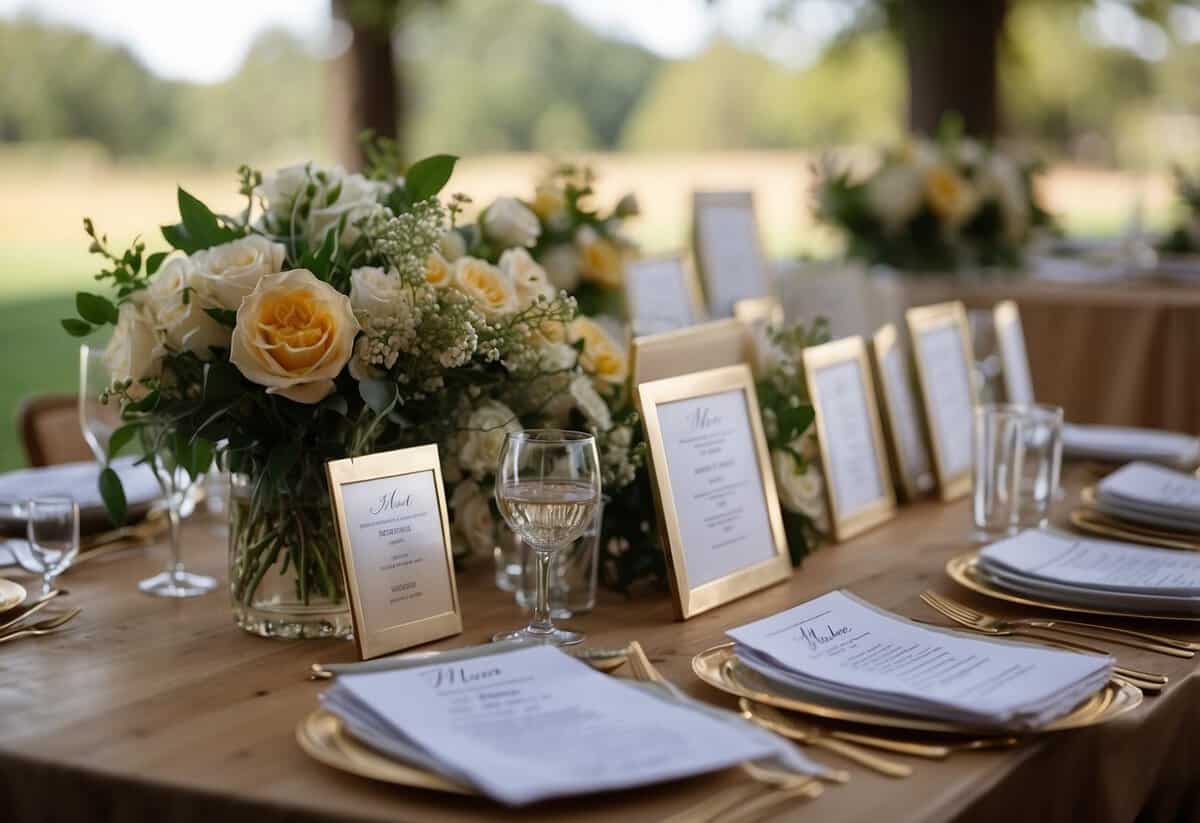
In this article, you’ll find practical advice to help you become a more effective wedding coordinator. By mastering these tips, you can create unforgettable experiences for couples and help turn their dreams into reality.
1) Create a Detailed Timeline

Start planning your wedding timeline early to ensure everything runs smoothly. List all the key events of the day, such as getting ready, the ceremony, photo sessions, and the reception.
Assign specific times to each event. This helps everyone involved know when and where they need to be, keeping the day on track.
Include buffer times between events to account for any delays. This helps avoid stress if things run behind schedule.
Share the final timeline with everyone involved, including vendors and the wedding party. Make sure everyone is on the same page and ready to follow the plan.
Review the timeline a week before the wedding. Make any necessary adjustments to ensure a perfect day.
2) Communicate Clearly with Vendors

Being clear and honest with your wedding vendors is crucial.
When discussing your needs, be concise. Direct communication helps vendors understand what you want faster.
Always share your budget openly and honestly. This helps vendors provide the best options within your limits.
Keep track of important documents, like the marriage license, and ensure your vendors know where these are.
Building personal connections with your vendors makes collaboration smoother. Trust is key.
3) Prepare a Backup Plan

A backup plan is essential for any wedding. You never know what might happen on the big day, like sudden rain or unexpected venue issues.
First, talk to your venue about backup options. This could mean having a second indoor location ready or setting up tents if the wedding is outside. Make sure these options fit your wedding style.
Consider the guests too. If the weather changes, have umbrellas and blankets available. Keep your guests comfortable and happy no matter what.
Discuss your plans with other vendors. Make sure they know the backup plan and are ready to adjust if needed. This keeps everything running smoothly.
Lastly, keep an emergency kit handy. Include things like extra makeup, safety pins, and first aid supplies. This way, you’re ready for any small hiccups that might pop up.
4) Arrange a Final Walkthrough
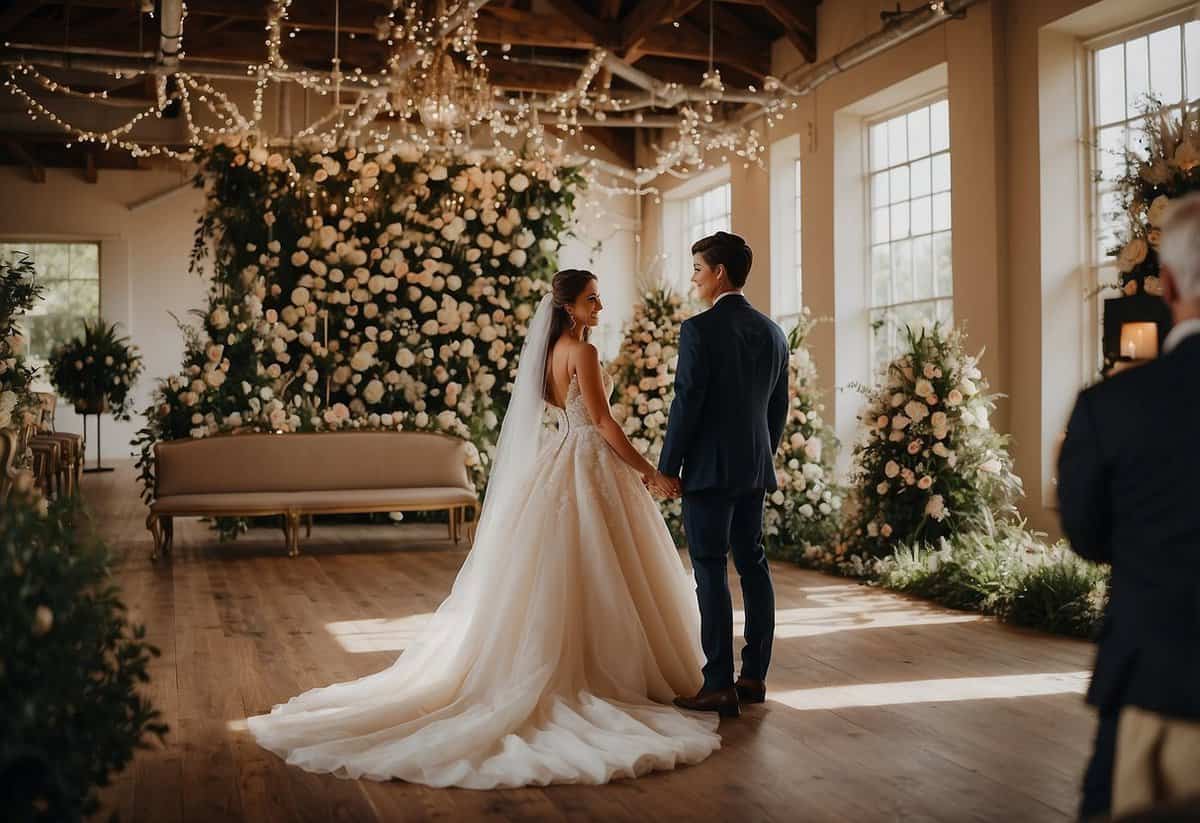
A final walkthrough is crucial for making sure everything is on track for the big day. This is your chance to verify all details with the couple and key vendors.
Gather your notes and the couple’s vision for the day. Walk through the venue, reviewing the layout, decorations, and setup plans.
Check the timeline. Confirm times for each event like the ceremony, cocktail hour, and reception. This helps everyone stay organized and on schedule.
Don’t forget to confirm all deliveries and placements with vendors. Make sure they know when and where they need to set up.
Include a check for any last-minute changes to the seating chart or guest list. If someone can’t make it or brings a plus-one, adjust accordingly.
Use this time to spot and fix any potential problems. It ensures a smooth, stress-free wedding day.
5) Maintain a Wedding Day Kit
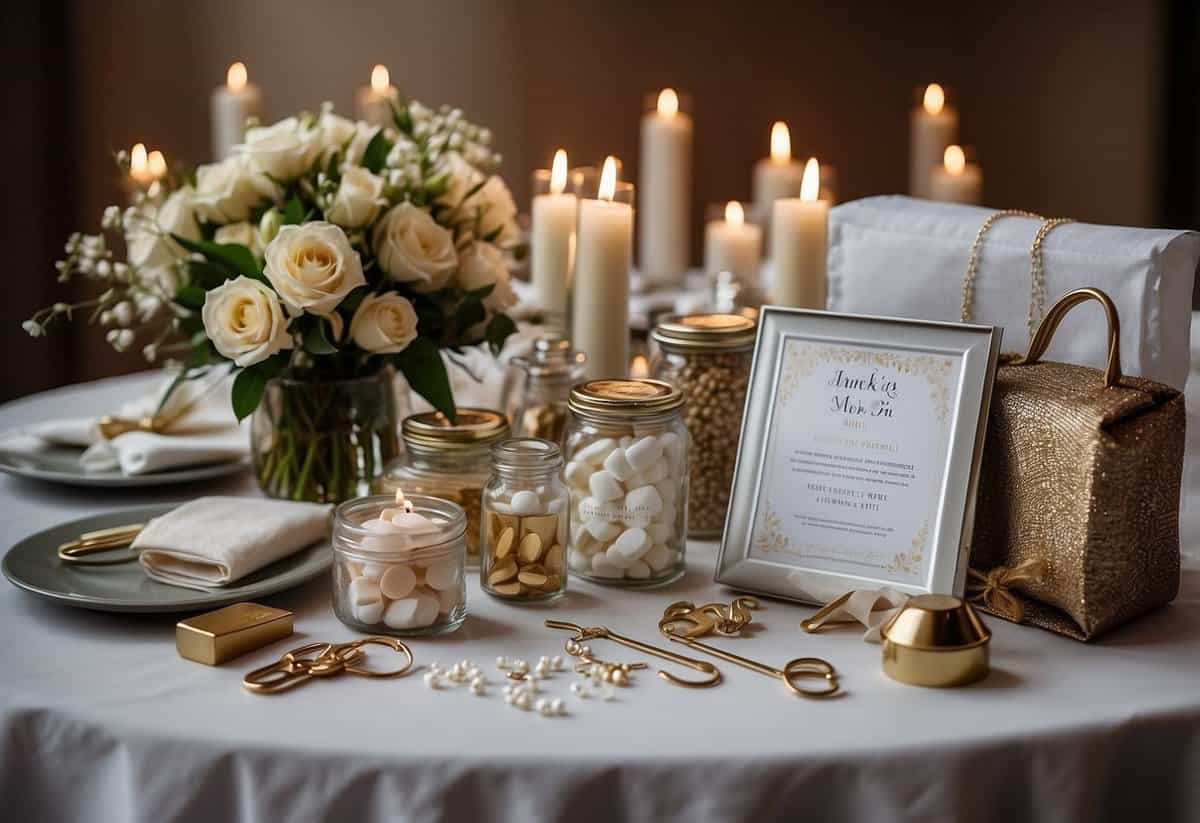
A well-stocked wedding day kit is a must-have for any coordinator. This kit helps solve last-minute problems and keeps the day running smoothly.
Safety pins, sewing kits, and scissors can save the day if there’s a wardrobe malfunction. Hairspray, stain sticks, and static spray help with hair and clothing emergencies.
Don’t forget first-aid supplies like band-aids and pain relievers. Snacks and water are also essential, keeping everyone energized during the hectic day.
Having phone chargers, a notebook, and pens ensures you can address any logistical issues right away. A good wedding day kit means you’re ready for anything!
6) Stay Calm and Flexible

Wedding days can be unpredictable. As a coordinator, the best way to handle this is to stay calm and flexible. You might have a perfect plan, but there can be last-minute changes.
Communicate openly with the couple and vendors. If something goes wrong, stay composed. Your calm attitude will help others stay calm too.
Sometimes plans need to be adjusted on the fly. Be ready to pivot quickly and think of solutions. This adaptability ensures that the day runs smoothly, no matter what challenges arise.
Taking breaks and asking for help when needed can keep you from feeling overwhelmed. Remember, a calm coordinator inspires confidence in everyone involved. Forget about being perfect; focus on being adaptable.
7) Coordinate the Rehearsal
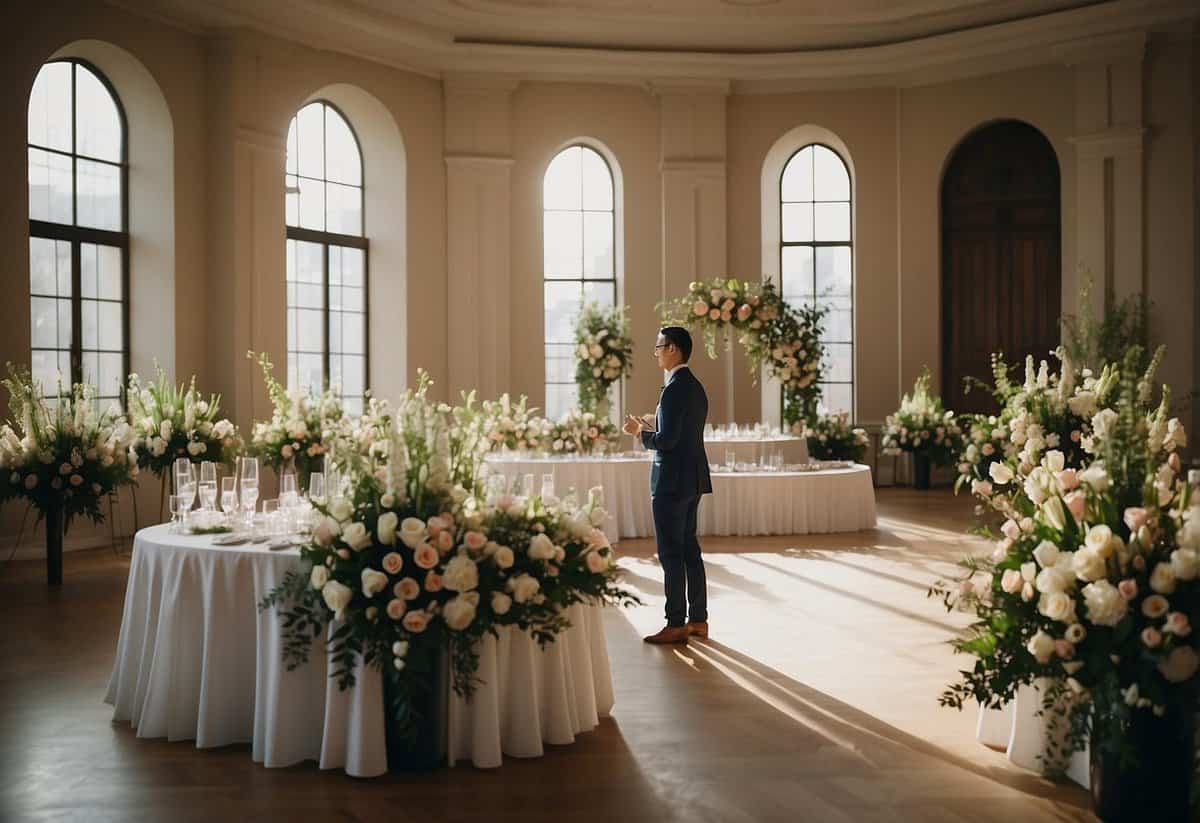
Having a smooth wedding rehearsal is key. Start by choosing someone to oversee the rehearsal. This person can be a wedding planner, coordinator, or even a trusted friend.
Make sure to talk with the officiant and go over ceremony details. Confirm the officiant’s availability for the rehearsal.
Coordinate with any other key participants. Ensure everyone knows their roles and what to expect. This includes the bridal party, parents, and anyone else involved in the ceremony.
Practice the processional and recessional. Walk through the order and timing to make sure everyone is comfortable. Rehearsal is the time to iron out any kinks so everything goes smoothly on the big day.
A well-organized rehearsal can set a positive tone. It helps everyone involved feel confident and ready.
8) Manage the Guest List
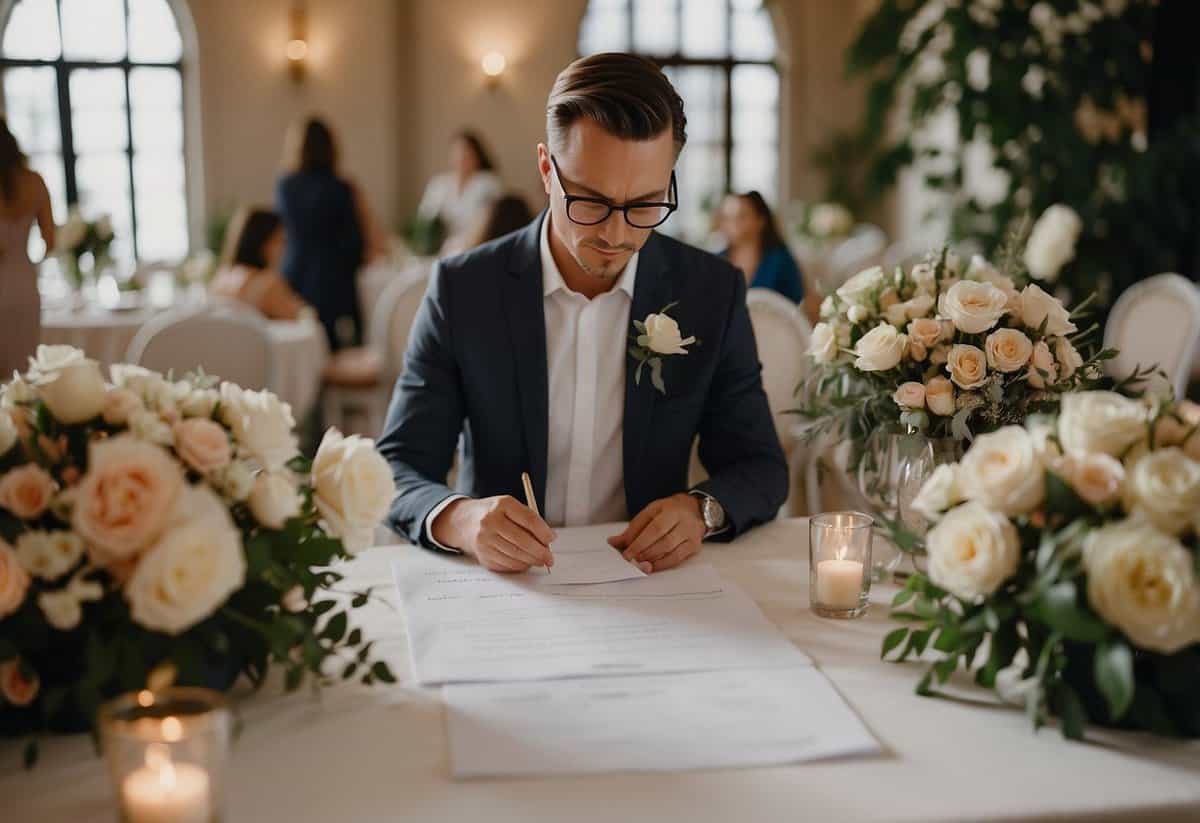
Managing the guest list is crucial for a smooth wedding. Start by making a master list of everyone you want to invite. This will help you see if your desired guest count fits your budget and venue space.
Set clear rules about plus-ones and communicate them early. Decide whether plus-ones are allowed and who qualifies for them. This helps avoid confusion later.
Stay organized by using a spreadsheet. Update it regularly with RSVPs and important details. This will make tracking easier and help you stay on top of things.
Consider creating an A-list and a B-list. Send invitations to the A-list first, and if some people can’t attend, invite guests from your B-list. This ensures you fill your venue without exceeding capacity.
Delegate tasks like following up on RSVPs to your wedding coordinator. This will save you time and keep the process stress-free. Your coordinator can manage meal requests and table arrangements too.
9) Confirm Vendor Deliveries

Make sure to double-check all delivery times with your vendors. This includes the cake, flowers, rentals, and other essential items. Confirming these details helps avoid any last-minute surprises.
Reach out to each vendor a week before the wedding. Confirm the exact time and location for their deliveries. This ensures everyone is on the same page.
When confirming, provide a contact number for the day of the wedding. This way, vendors can quickly reach you if there are any issues or delays. Having one point of contact makes things smoother.
Review the delivery schedule and make note of any overlapping times. Plan accordingly to ensure that you or your team is available to receive each delivery.
10) Handle Setup and Tear Down
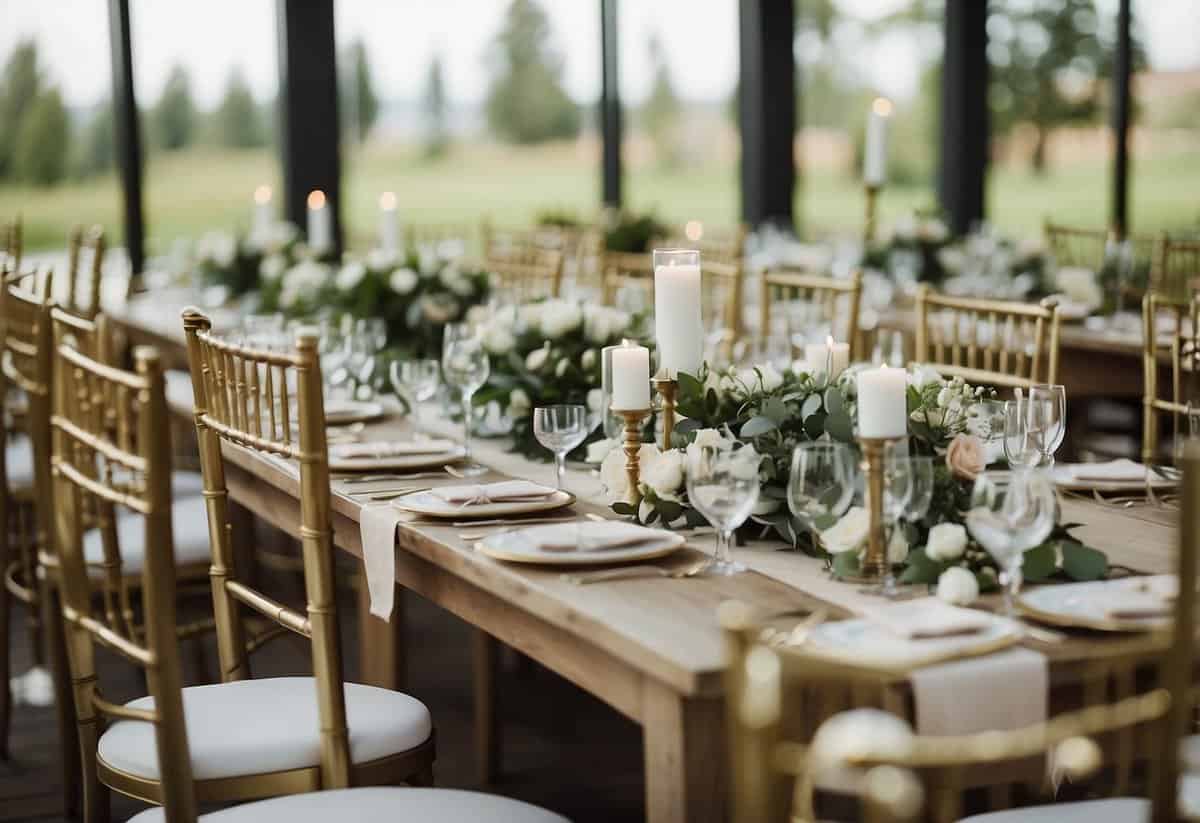
As a wedding coordinator, you’re responsible for setup and tear down of the event. You make sure every detail is perfect before guests arrive.
You’ll oversee setting up tables, chairs, decorations, and any special installations. Make sure everything matches the couple’s vision.
After the event, you manage the tear down. This involves packing up decorations, breaking down tables and chairs, and ensuring nothing is left behind. You coordinate with vendors and staff to leave the venue just as clean as you found it.
Understanding the Role of a Wedding Coordinator
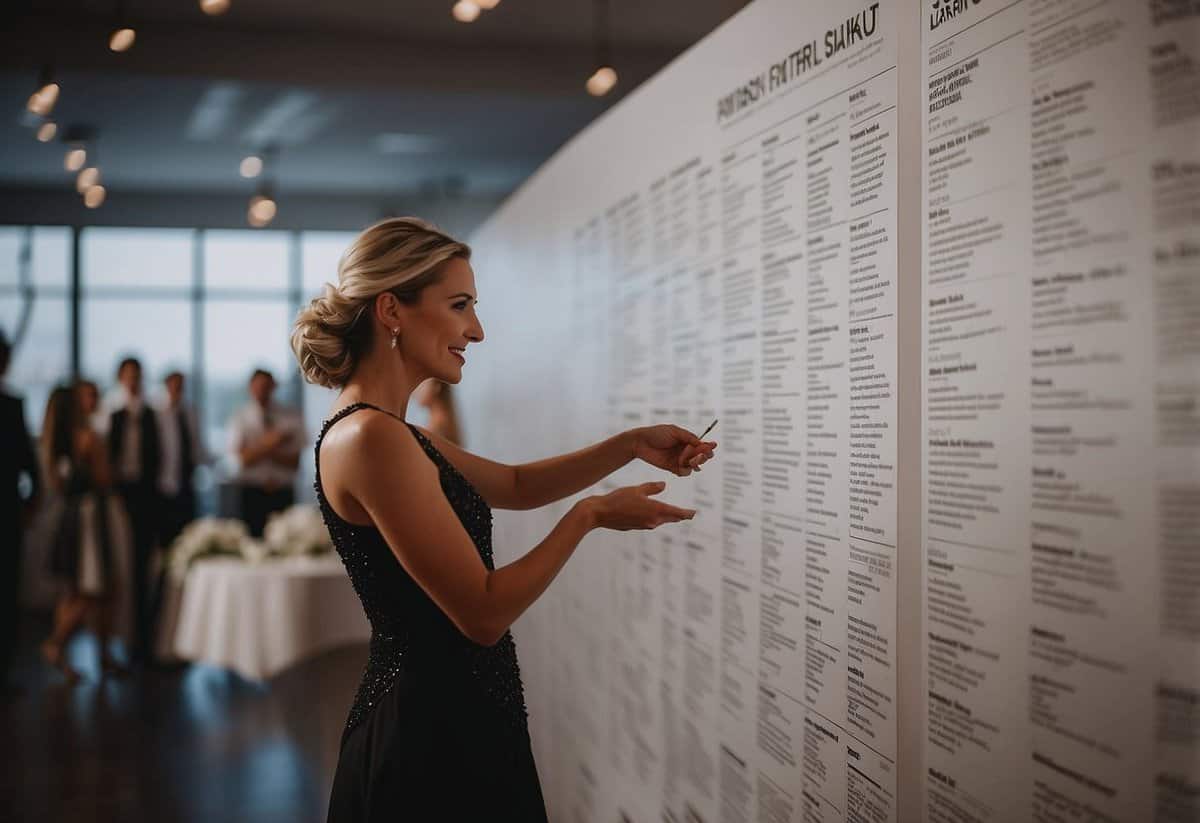
A wedding coordinator is essential for a smooth wedding day. Their job is to manage the details, keep everything on track, and ensure that the couple can enjoy their special day without stress.
Key Responsibilities
A wedding coordinator handles various tasks to make sure your day goes off without any issues. They confirm details with vendors, making sure everyone knows where and when to be. They also manage the timeline of the event, ensuring each part of the day happens as planned.
They deal with any issues that arise, so you and your guests don’t have to worry. They also help manage the rehearsal. This makes sure everyone knows their roles, which helps everything run smoothly on the big day.
Difference Between a Wedding Planner and Coordinator
A wedding planner is involved from the beginning. They help you select the venue, choose vendors, and design the look and feel of the wedding. Planners provide ongoing support throughout the planning process.
A wedding coordinator, on the other hand, steps in closer to the actual wedding date. Their main focus is on the day itself. They ensure all plans are executed properly and handle any last-minute details.
While both play crucial roles, a planner is there for the long haul, while a coordinator focuses on the final execution of your vision. Both aim to make your wedding day as special and stress-free as possible.
Best Practices for Wedding Coordinators
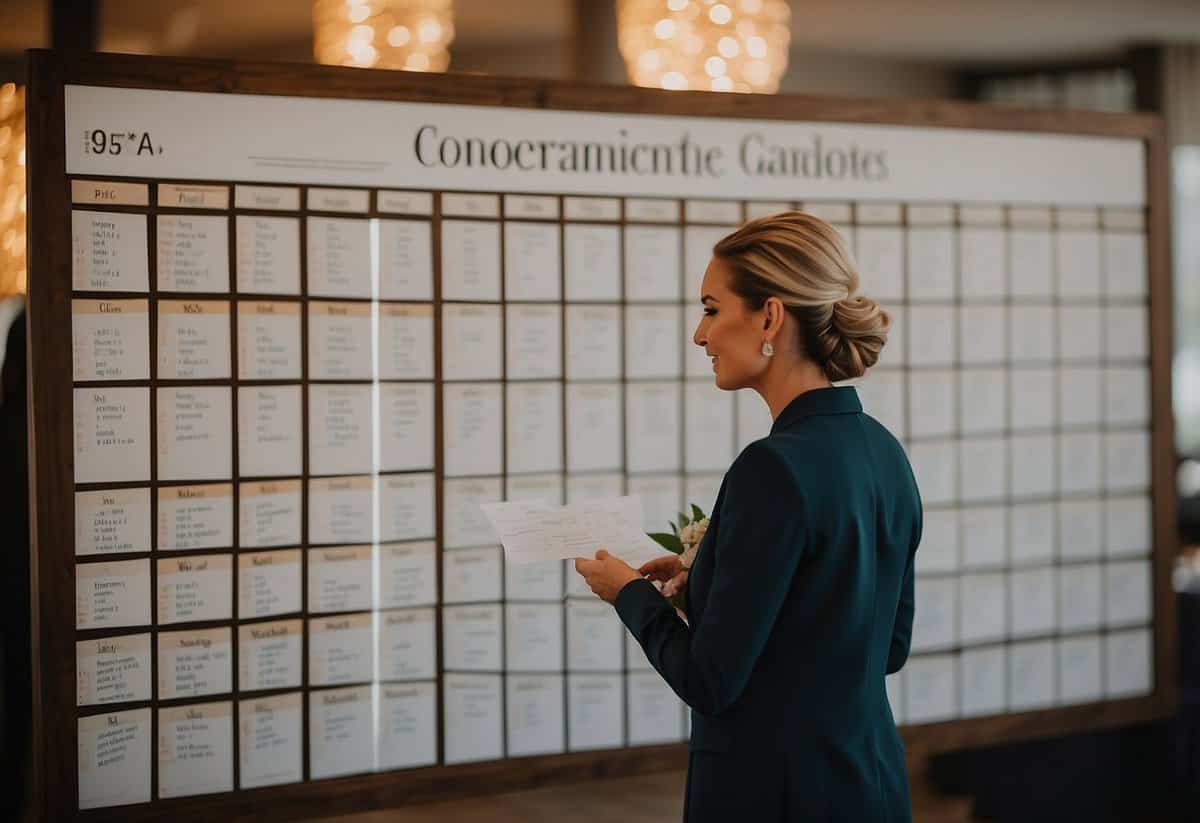
Being a successful wedding coordinator involves clear communication, meticulous planning, and quick problem-solving.
Effective Communication Strategies
Good communication is key. You need to make sure everyone knows their roles and timing. Use clear instructions and repeat them often to avoid confusion.
Create a contact list with vendor names and phone numbers. Share this list with your team. Have regular check-ins with the couple and vendors to make sure everyone is on the same page.
Listen well and be approachable. Keep track of questions and concerns, and address them promptly. Use emails, phone calls, and meetings to ensure all details are sorted out.
Creating Detailed Timelines
Timelines keep events running smoothly. Start by mapping out the entire day from start to finish. Include set-up and tear-down times. Share the timeline with all involved.
Include details like vendor arrival times, ceremony start, reception entrance, and key moments. Make sure everyone receives the timeline a few weeks before the wedding.
Plan buffer times for unexpected delays. Update the timeline as needed and remind everyone of any changes. This helps everyone stay on track and reduces stress.
Managing Emergencies Smoothly
Emergencies can happen. Stay calm and be prepared. Have a kit with essentials like safety pins, tape, and a first aid kit.
Make a list of backup vendors in case of no-shows. Keep contact information handy for unexpected issues like weather problems or transportation delays.
During emergencies, communicate clearly. Let everyone know what’s happening and your plan to handle it. Quick thinking and a calm attitude can turn a potential disaster into a minor hiccup.
Building Strong Vendor Relationships

Building strong vendor relationships is crucial for a wedding coordinator. Trust and communication are key in establishing and maintaining partnerships with vendors, ensuring that each wedding runs smoothly and meets client expectations.
Selecting Reliable Vendors
Choosing the right vendors is essential for a successful wedding event. Start by conducting thorough research. Recommendations from other wedding planners can be incredibly helpful. Additionally, attend wedding expos and events to meet vendors face-to-face and see their work firsthand.
When evaluating a vendor, look at their portfolio and ask for references. Viewing their previous work can give you a good idea of their style and quality. Don’t forget to check for licenses and insurance, which are important for avoiding any potential legal issues. Lastly, establish clear contracts outlining your expectations and responsibilities to prevent any misunderstandings.
Maintaining Professional Network
Maintaining a strong professional network with your vendors requires regular communication. Keep in touch with your vendors even when you don’t have a current event together. This strengthens your relationship and keeps you in their mind for future opportunities.
Treat your vendors with kindness and respect. Remember, they also deal with the stress of the wedding industry. A little appreciation goes a long way. Never underestimate the value of a simple thank-you note or a small gesture of gratitude.
Regularly share leads and business opportunities. This mutual support helps build a positive and cooperative working relationship. In addition, always be fair and supportive in your dealings to foster goodwill and trust.








